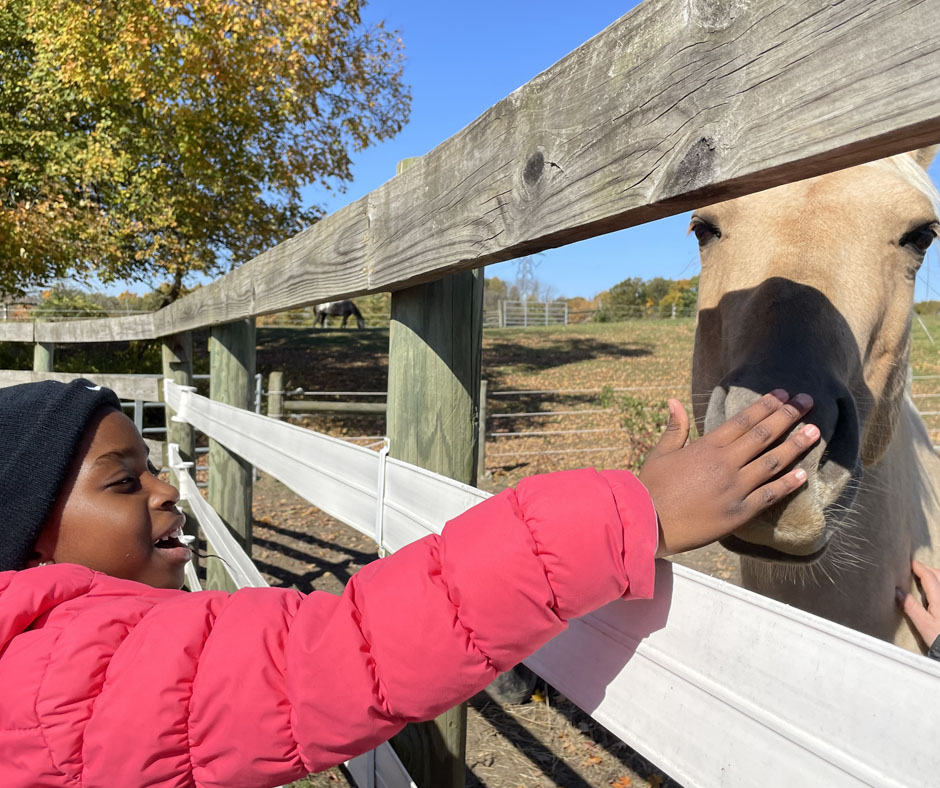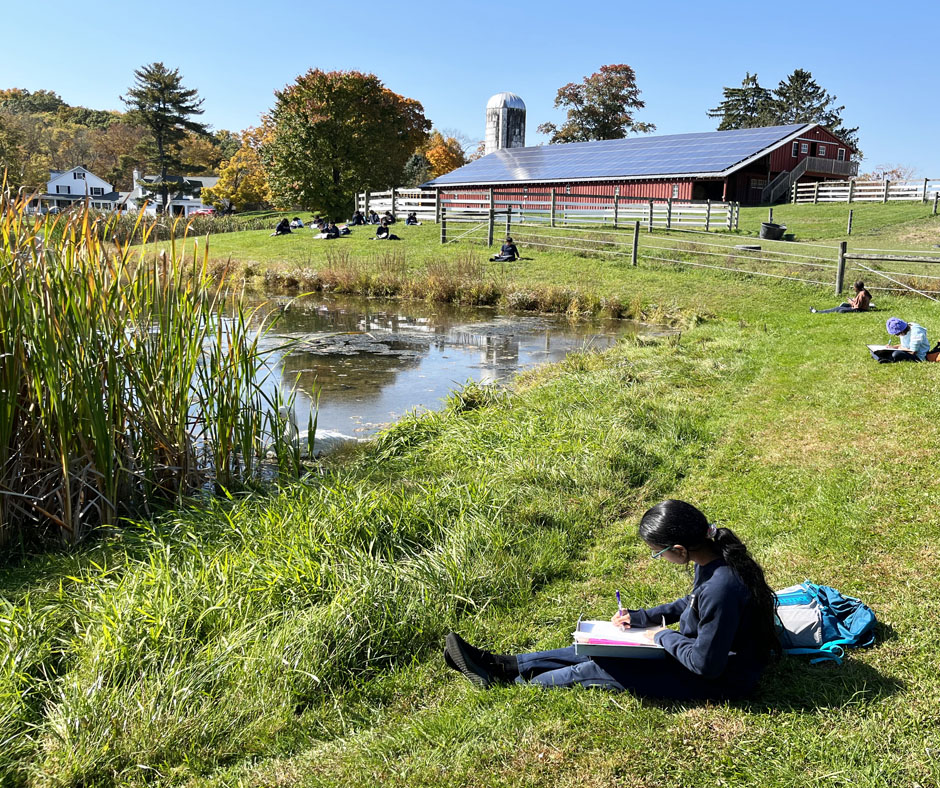
Experiential learning extends beyond the classrooms at Cedar Hill Prep!

Wouldn’t it be fascinating to understand the effects of animal interactions on human health? A high schooler from Maryland, Naina Nambiar, conducted research on the effects of animal interactions on human health at NJIN. The study found that over the last 10 years, human-animal interactions have led to numerous health benefits. It is intriguing to learn about the positive impact animals can have on human health. Research plays an integral role in a student’s life and we at CHP invest a lot in building the foundation for students to excel in research.
Nan Menon’s conception was of a school that would be singularly focused on building student skill sets using methodologies that were proven successful in the East and validated by organizations like the TIMSS. Fast forward to today, students from CHP have repeatedly demonstrated excellence in their learning outcomes in National and International normed assessments, and state, national, and international level academic competitions. CHP students receive a holistic education embedded within a nurturing environment that is socially, emotionally, and culturally mindful. Our promise is to educate the whole child and our curriculum is largely based on experiential learning.
What we do at NJIN
 Problem-solving skills, written communication skills, and leadership are just a few examples of qualities that our research team cultivates. Young minds are born curious and perpetually inquisitive. Our goal at NJIN is to tap into this curiosity and create a community of thinkers and achievers.
Problem-solving skills, written communication skills, and leadership are just a few examples of qualities that our research team cultivates. Young minds are born curious and perpetually inquisitive. Our goal at NJIN is to tap into this curiosity and create a community of thinkers and achievers.
Opportunities are endless with our research team which is led by Dr. Nan Menon (Ed.D.) the Director of our school and someone the students look up to for academic guidance. CHP’s middle schoolers do not shy away from challenges and our research mentors encourage each and every student to participate in competitions like the Young Scientist Challenge; and Regeneron Science Talent Search.
With the added feature of the Capstone Research Program, which is also a crucial part of NJIN, students engage in scientific research using innovative methods. Through reciprocal, community-based research, our young scientists explore a plethora of subjects they can choose from and conduct scientific studies on, eventually paving the way for endless learning.
Our three pillars for experiential education are:
- To build a strong foundation of scientific research for future scholars
- To support the development of future entrepreneurs
- To share wellness resources for personal health and development
Albert Einstein famously said, “Learn from yesterday, live for today, and hope for tomorrow!” The mentors at NJIN strive to instill a love for science through innovative research techniques.
If you would like to learn more about the work that our students are involved in, visit our website https://www.njin.us/





